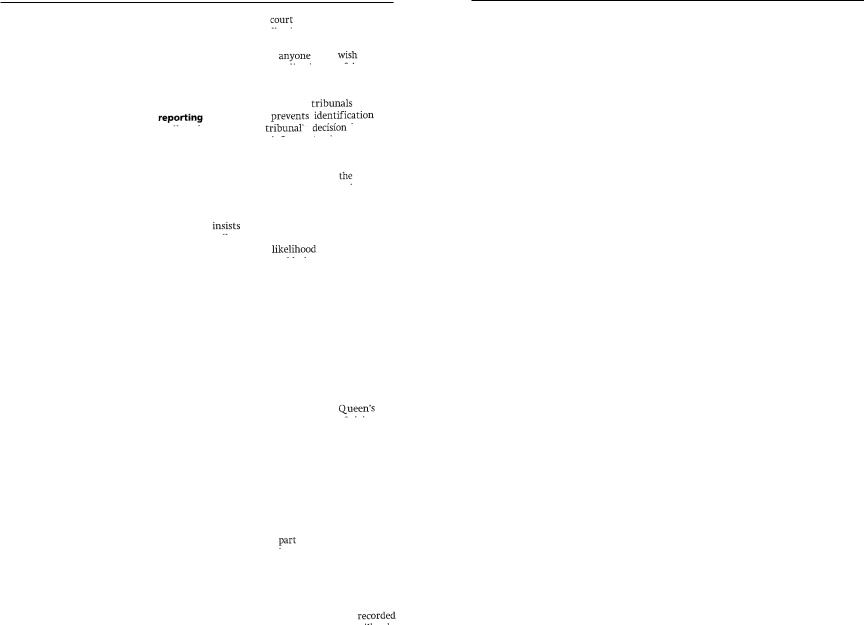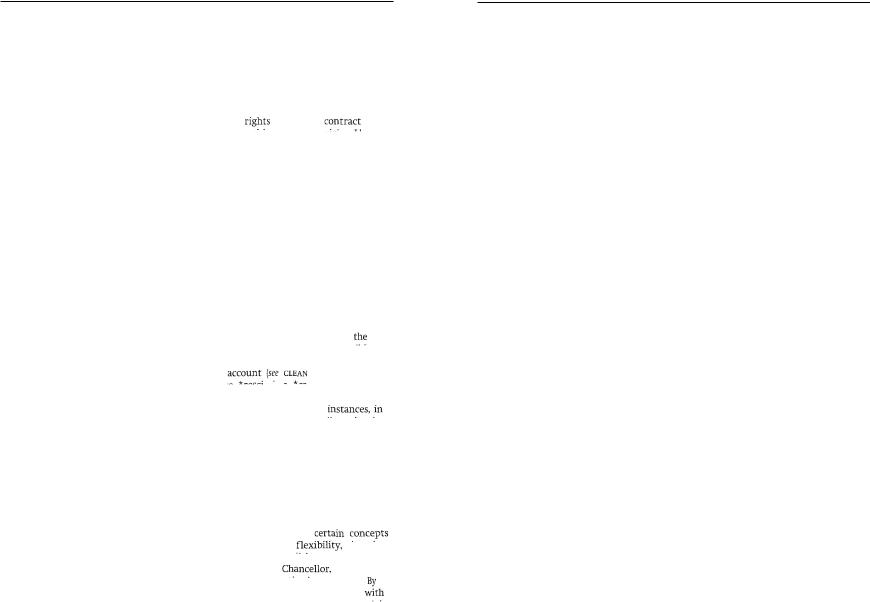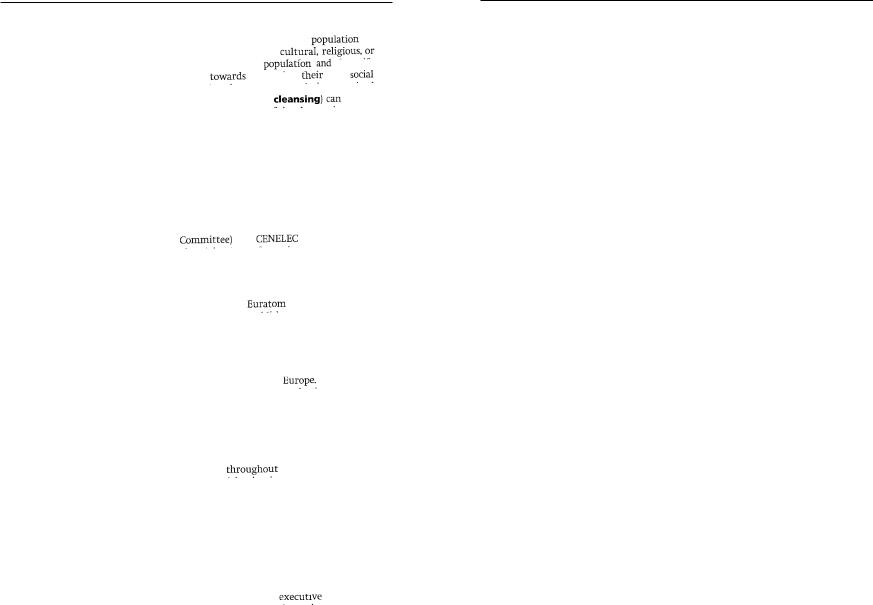
Elizabeth A Martin - Oxford Dictionary of Law, 5th Ed. (2003)
.pdf
enforcement of judgment |
174 |
remedy an alleged breach of planning control. An example of such a breach would occur if development was carried out without planning permission or contrary to conditions attached to planning permission. A local planning authority that has notice of a breach of planning control has, however, a discretion as to whether to enforce against that breach. Appeal against the notice may be made to the Secretary of State on various grounds, including the ground that the development is one for which planning permission ought to be granted. See also STOP NOTICE.
enforcement of judgment The processes by which the orders of a court may be enforced. Orders for the payment of money may be enforced by a variety of methods, including a writ of *fieri facias (in the county court, a warrant of execution), *garnishee proceedings, *charging orders, the appointment of a *receiver, a writ of *sequestration, and (rarely) an order of committal (see COMMITTAL IN CIVIL PROCEEDINGS). In the county court (and in the High Court in certain matrimonial proceedings only) *attachment of the debtor's earnings is also available.
Judgments for possession of land may be enforced by *writ of possession (in the county court, a warrant of possession). Judgments for delivery of goods may be enforced by *writ of delivery (in the county court, a warrant of delivery). Judgments relating to performance of or abstention from some act (e.g. an *injunction) may be enforced by order of committal or writ of sequestration.
enfranchise vb. 1. To give to a person or class of people the right to vote at elections. 2. To give to an area or a class of people the right to be represented on an elected body.
enfranchisement of tenancy A method for acquiring the freehold or an extended lease of a leasehold house. A tenant has a statutory right of enfranchisement when he has a long lease (exceeding 21 years) and the house has been his *main residence for at least three years. The valuation of the freehold, or rent of an extended lease, is based on the value of the land without the buildings on it.
The Leasehold Reform Act 1993 abolished the rateable value limits for houses and extended to flat leaseholders the right to acquire collectively the freeholds of their flats. From 1 April 1997 the Housing Act 1996 abolished in most cases an earlier requirement that enfranchisement only applied to leases at a low rent with a duration of over 35 years. This area of the law is currently under review, with a view to relaxing rules for qualification and residency.
engagement to marry An agreement, verbal or in writing, to marry at a future date. Such agreements are no longer treated as enforceable legal contracts, and no action can be brought for breach of such an agreement or to recover expenses incurred as a result of the agreement. Engagement rings are deemed to be absolute gifts and cannot be recovered when an engagement is broken. There is a special statutory provision that property rights between engaged parties (for example, in respect of a house purchased with a view to marriage) are to be decided in accordance with the rules governing property rights of married couples.
engross vb. To prepare a fair copy of a deed or other legal document ready for execution by the parties.
enlarge vb. (in land law) To acquire further rights in land, thereby increasing one's interest to some greater estate or interest. For example, a *tenant in tail may enlarge his interest into a fee simple by executing a disentailing deed (see ENTAILED INTEREST). A mortgagee in possession for 12 years may, by executing a deed, enlarge his interest into a fee simple free from the mortgage.
175 |
entry without warrant |
|
|
enrolment n. The registration of an act or document on an official record. It used to be obligatory to enrol many documents in the Enrolment Office, a department of
the Chancery Division. Nearly all such obligations were abolished by the Judicature Acts 1873-75.
entailed interest An *equitable interest in land under which ownership is limited to a person and the heirs of his body (either generally or those of a specified class). Such heirs are still those who would inherit under the law of intestacy as it applied before the Administration of Estates Act 1925. Since 1997, no new entailed interests can be created. An attempt to do so creates an absolute interest instead.
enter vb. 1. (in the law of *burglary) To make "an effective and substantial" entry as a trespasser. This does not necessarily require entry of the whole of the defendant's body. 2. (in land law) See ENTRY INTO POSSESSION.
entering jUdgment A procedure in civil courts in which a judgment is formally recorded by the court after it has been given. In the Queen's Bench Division it is necessary for the party seeking to have judgment entered to draw up the judgment and present it to an officer of the court for entry together with the certificate of the associate (clerk of the court) and the statements of case. In the county court, the court itself draws up and enters the judgment.
Enterprise Investment Scheme (EIS) A scheme to encourage investment in unquoted companies; it replaced the similar Business Expansion Scheme on 1 January 1994. It gives income tax relief of 20% on investments to individuals who invest from £500 to £150,000 in anyone year in shares issued by UK trading companies not quoted on the Stock Exchange. Shares issued under this scheme are also exempt from capital gains tax. Investors can hold paid directorships of the companies; there is also income and capital gains tax relief on losses. Companies providing private housing on assured tenancies are excluded from the scheme.
entire contract See PERFORMANCE OF CONTRACT.
entrapment n. Deliberately trapping a person into committing a crime in order to secure his conviction, as by offering to buy drugs. English courts do not recognize a defence of entrapment as such, since the defendant is still considered to have a free choice in his acts. Under the Police and Criminal Evidence Act 1984, entrapment may be a reason for making certain evidence inadmissible on the ground that the admission of the evidence would have such an adverse effect on the fairness of the proceedings that the court ought not to admit it. The question of the admissibility of evidence obtained through entrapment is in some doubt as a consequence of the cases now being decided under the "Human Rights Act 1998. Entrapment may also be used as a reason for mitigating a sentence. See alsoAGENT PROVOCATEUR.
entry into possession The act of going upon land to assert some right over it. For example, a lease usually gives the landlord the right to enter and take possession if the tenant fails to pay the rent or commits a breach of covenant. A mortgagee has the right to recover possession from a defaulting mortgagor who is in possession. In general, such rights of entry cannot be enforced unless the court orders the defaulter to give up possession.
entry without warrant Entry by a police officer onto private premises without the authority of a warrant. This is in general unlawful except with the occupier's consent (which is revocable), but it is permitted by statute for the purpose of arresting for certain offences (see ARRESTABLE OFFENCE) and in certain circumstances








